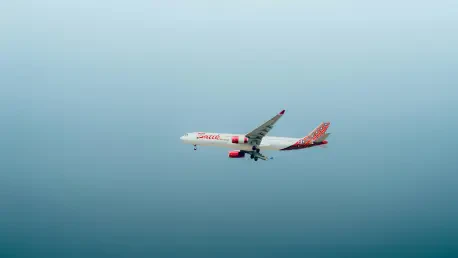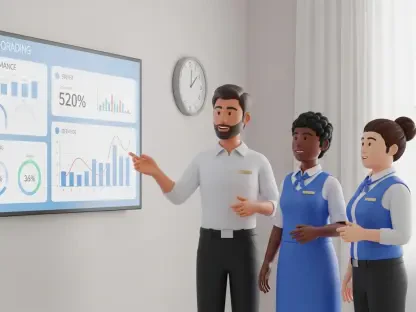In the world of aviation, where safety mechanisms are paramount, imagine the unsettling experience of realizing a potential threat mid-air and the swift actions necessary to circumvent it. These challenges become increasingly significant when dealing with a complex issue like a fuel leak while cruising tens of thousands of feet above ground. Such was the concern aboard Delta Flight 1622—a moment that tested the resolve of protocols and the effectiveness of immediate action.
The Gravity of a Mid-Air Diversion
Airline safety is often taken for granted until an unexpected event disrupts the usual routine. For the 191 passengers aboard Delta Flight 1622 en route from New York’s JFK to Orlando International Airport, their journey took an unforeseen turn. With an unidentified maintenance issue suggesting a possible fuel leak, their flight was diverted to Norfolk International Airport. This diversion demonstrated the urgency required to address what could have been a significant threat to onboard safety. The careful execution of protocols ensured the aircraft landed safely, epitomizing the importance of prompt detection and response.
Understanding the Dangers of Fuel Leaks
Fuel leaks pose a critical hazard in aviation, accounting for the potential of both safety risks and operational challenges. If not addressed immediately, they can lead to devastating consequences due to fuel deficiencies or potential ignition. Airlines continuously invest in risk management practices, focusing on advanced detection and preventive measures. The incident with Delta 1622 reinforces public awareness about these safety concerns and encourages transparency in risk communication within the industry.
This Incident Showcases Proactive Response and Expertise
The airline’s handling of this threat unfolded in a systematic approach. Once the potential leak was detected, quick decisions prevailed—the flight crew diverted the aircraft safely, and maintenance teams swiftly began thorough inspections. Statistics indicate the rarity of mid-flight fuel leaks, emphasizing the need for well-coordinated responses. Delta’s adept management highlighted efficient protocol adherence, a testament to industry standards that prioritize passenger safety above all else.
Insights from Aviation Experts and Advancements in Technology
In aviation safety, detecting and combating such issues relies on continuous improvement and expert insights. Safety protocols aim to identify and address potential leaks swiftly. Experts acknowledge advancements like advanced sensor systems and AI-driven diagnostics, which increase accuracy in monitoring. Maintenance professionals consistently test these protocols, ensuring real-time responses. Their firsthand experiences offer crucial lessons in maintaining airplanes, ensuring passenger safety, and preventing incidents from escalating further.
Ensuring Continued Passenger Safety Amid Emergencies
Emergencies like the fuel leak on Delta 1622 demand airlines and passengers cooperate for optimal safety outcomes. For airlines, this entails thorough inspections, timely communication, and alternative arrangements to mitigate passenger inconvenience. Passengers should stay alert, access reliable updates, and understand guidelines during such disruptions. By implementing robust communication strategies, airlines can better inform and reassure passengers, enhancing satisfaction despite delays.
Delta Flight 1622’s diversion serves as a reminder of aviation’s unwavering commitment to safety. Though inconvenient, the careful execution of protocols and dedication to thorough inspections emphasized passenger protection. The incident shed light on necessary vigilance and continual improvements in safety measures. Navigating unexpected challenges requires adaptability, foresight, and cooperation—qualities that remain central to ensuring the well-being of everyone who takes to the skies.









